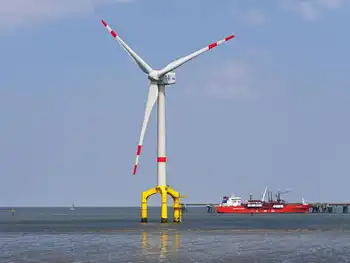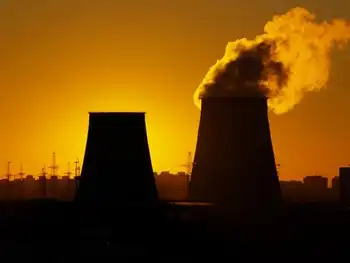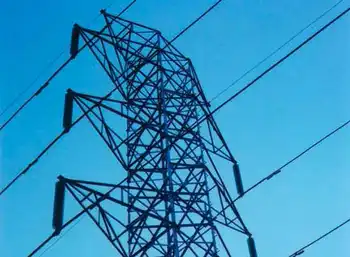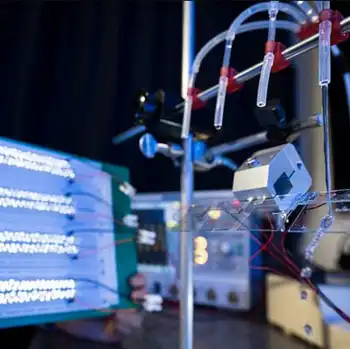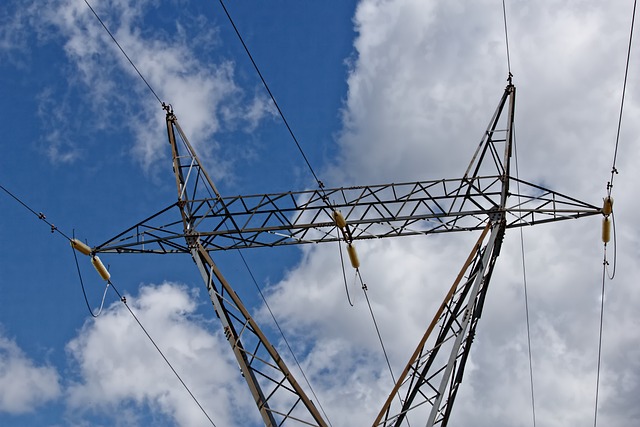BCÂ’s Bioenergy Strategy advances innovation
By EnergyNews.com
NFPA 70e Training - Arc Flash
Our customized live online or in‑person group training can be delivered to your staff at your location.

- Live Online
- 6 hours Instructor-led
- Group Training Available
“The BC Bioenergy Strategy lays the framework for us to convert more waste into clean energy, helping to ensure we meet future energy demands,” said Campbell. “There is an abundance of bioenergy opportunities, such as using biomass created out of the mountain pine beetle outbreak that can stimulate investment and economic diversification while producing clean energy.”
Within the next decade, the strategy will help the Province achieve targets for electricity self-sufficiency and reliability, zero net greenhouse gas emissions from energy generation projects and increased use of biofuels in diesel and gasoline in B.C.
As part of the strategy, the Province will seek legislative approval for $25 million in funding to establish a provincial Bioenergy Network for greater investment and innovation in B.C. bioenergy projects and technologies. Legislative approval will also be sought for up to $10 million in funding over three years for biodiesel production.
The Bioenergy Network will encourage the development of pilot and demonstration projects with industries and communities in key biomass resource areas. It will support research into socially and environmentally responsible dedicated energy crop production and enhance enzymatic and other biotechnology solutions for biomass-to-energy conversion. It will also advance the development of biofuels, such as cellulosic. The network will strengthen the development of world-class bioenergy research and technology expertise in British Columbia. This will include the creation of at least one academic leadership chair in bioenergy.
“Providing up to $10 million in funding for biodiesel production will bring new opportunities to rural communities,” said Energy, Mines and Petroleum Resources Minister Richard Neufeld. “And we will develop one of Canada’s most comprehensive provincial biomass inventories, identifying waste to energy opportunities throughout B.C.”
“B.C. has half of Canada’s entire biomass electricity-generating capacity,” said Forests and Range Minister Rich Coleman. “This strategy helps forest-dependent communities and brings opportunity to the agriculture sector as it looks at recovering maximum value from beetle-killed timber, wood wastes, and agricultural residues to generate renewable energy.”
The BC Bioenergy Strategy includes:
· $25 million in funding to establish a Bioenergy Network.
· Up to $10 million over three years for biodiesel production.
· A goal of meeting 50 per cent or more of B.C.’s renewable fuel requirements by 2020 with biofuels produced in B.C.
· A goal of establishing at least 10 community energy projects that convert local biomass into energy by 2020.
· The establishment of one of Canada’s most comprehensive provincial biomass inventories that creates waste-to-energy opportunities.
· Issuing a two-part Bioenergy Call for Power – the first part will be issued shortly, the second part by July 1, 2008 – focusing on existing biomass inventory in the forest industry and offering opportunities for smaller energy producers with projects that are immediately viable.
Additionally, the bioenergy strategy will help facilitate the closure of beehive burners and divert the waste stream for energy production, increase production and utilization of biofuels including biodiesel and facilitate production of anaerobic digestion bioenergy to address waste management challenges posed by the agricultural industry. The Province will also work with industry to develop new fine particulate standards for industrial boilers to improve air quality.
B.C. leads the country in energy production from biomass. Over 800 megawatts of biomass electricity capacity is installed in the province, enough to power 640,000 households. Pulp and paper mills meet over a third of their electricity needs through cogeneration of electricity and steam on site. In 2007, the B.C. wood pellet industry produced over 900,000 tonnes of wood pellets, of which 90 per cent was exported for thermal power production overseas.





